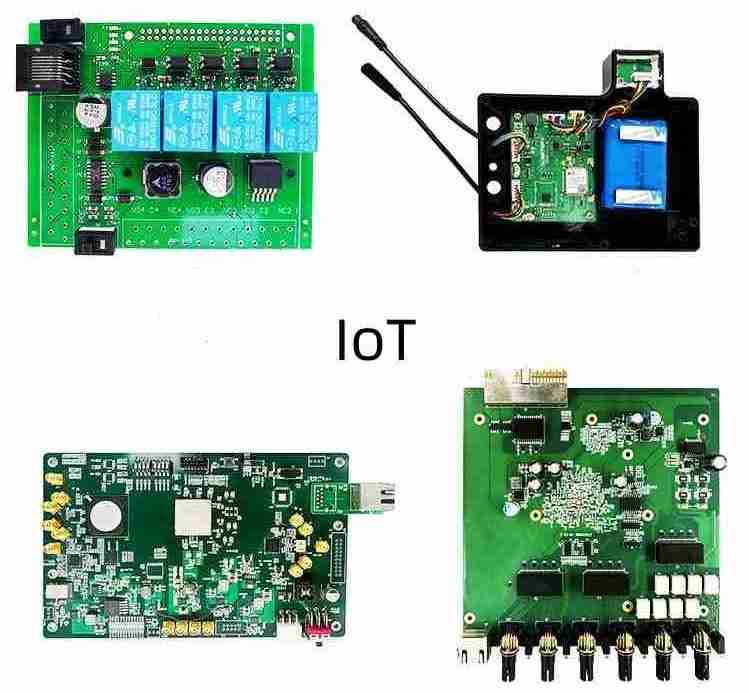Industrial Internet of Things is a new manufacturing method that applies Internet of Things technology to manufacturing.
The Industrial Internet of Things (IIoT) integrates various data collection sensors, control sensors, or controllers with perception, management, and control capabilities into all aspects of the industrial production process through IoT perception and communication technologies, thereby upgrading traditional industries to the intelligent stage.
The Industrial Internet of Things is mainly used in manufacturing, transportation, energy, mining, and other industries. It optimizes production processes, improves production efficiency, and reduces manufacturing costs.
Core technologies of industrial Internet of Things
Sensor technology: Industrial IoT sensors are the foundation of the Industrial Internet of Things. They convert various physical quantities in the industrial production process into electrical signals and transmit them to the back-end system through the communication network for processing and analysis.
Communication technology: Communication technology is the key to data transmission in the Industrial Internet of Things. It needs to meet the demand for harshness, reliability, and security in the industrial field environment.
Data analysis technology: Data analysis technology is a significant way for the Industrial Internet of Things to achieve intelligence. It can analyze the massive data generated in the industrial production process, thereby discovering the laws and trends in the production process and providing a basis for production decisions.
Application advantages of industrial Internet of Things
Improve production efficiency: The Industrial Internet of Things can improve production efficiency through real-time monitoring of production processes, automated control of production equipment, and optimized production scheduling.
Reduce manufacturing costs: Industrial IoT can reduce manufacturing costs by reducing production waste, optimizing energy use, and improving product quality.
Improve product quality: The Industrial Internet of Things can improve product quality through real-time control of product quality and automated product inspection.
Improve production safety: The Industrial Internet of Things can improve production safety by real-time monitoring of production equipment status and early warning of production risks.
There are many cases of industrial Internet of Things applications in manufacturing. Here are some typical cases:
Automobile manufacturing industry: In the automobile manufacturing process, the Industrial Internet of Things can monitor the status of production equipment in real-time, automate the production process, optimize production scheduling, etc., thereby improving production efficiency and reducing manufacturing costs.
Electronics manufacturing: In the electronics manufacturing process, IIoT can monitor product quality in real time, automate product inspections, and so on, thereby improving product quality.
Steel manufacturing industry: In the steel manufacturing process, IIoT can control the status of production equipment in real-time, warn of production risks, etc., thereby improving production safety.
The Industrial Internet of Things is a vital driving force for the manufacturing industry’s transformation and upgrading. It will promote the development of intelligent, digital, and networked manufacturing industries.
With the continuous development of industrial Internet of Things technology, its application will become more in-depth and extensive, bringing greater value to the manufacturing industry.
The following are specific application scenarios of Industrial Internet of Things in manufacturing:
Production process monitoring: The Industrial Internet of Things can collect various data in the production process in real-time through industrial iot sensors, including equipment status, process parameters, product quality, etc., and analyze these data to detect abnormal situations in the production process and provide timely warnings and processing.
Production process optimization: The Industrial Internet of Things can optimize the production process through data analysis technology, improve production efficiency, and reduce manufacturing costs.
For example, by analyzing production data, we can optimize production schedules and improve equipment utilization; by analyzing product quality data, we can optimize production processes and enhance the quality of products.
Product quality control: Industrial IoT can monitor product quality in real-time through sensors and automatically sort out unqualified products, improving product quality.
Equipment failure warning: The Industrial Internet of Things can analyze equipment status data and issue early warnings for equipment failures, thereby avoiding production losses caused by equipment failures.
Production safety management: The Industrial Internet of Things can improve production safety by analyzing production environment data and issuing early warnings of safety risks.
The application of IIoT in manufacturing is still in its infancy, but its development potential is enormous.
As industrial Internet of Things technology continues to mature, its applications will become more in-depth and extensive, bringing greater value to the manufacturing industry.






